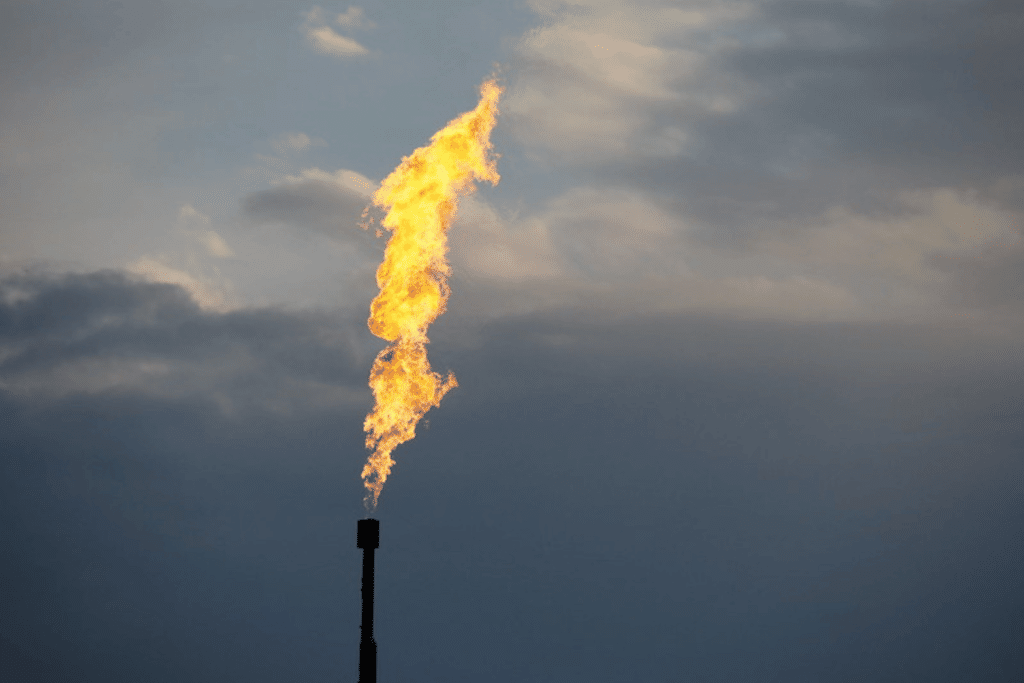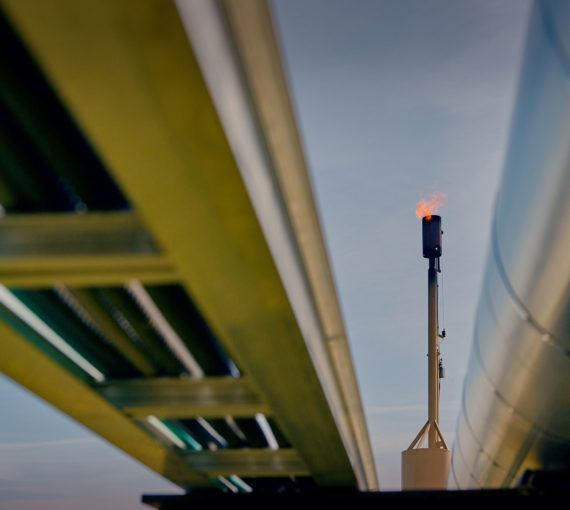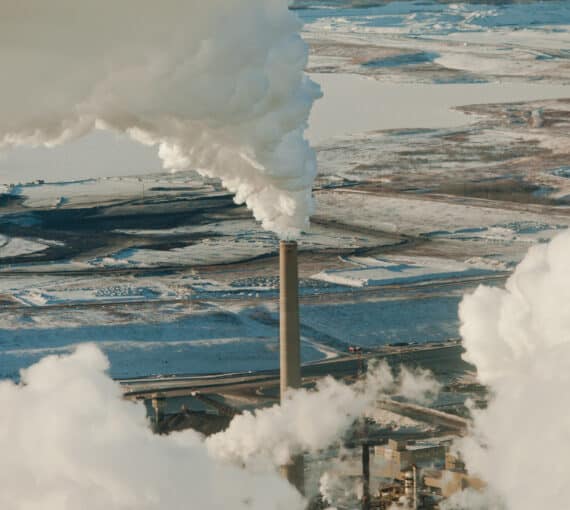
Flaring and leaks from wellhead to power plant emit massive amounts of methane into the atmosphere. (Photo: Clean Air Task Force via Flickr)
In response to multiple complaints, Ad Standards Canada recently found that advertising for fossil gas gave an “overall misleading impression … that B.C. LNG is good for the environment, amounting to greenwashing.”
The ads, by industry front group Canada Action, promoted the debunked message that so-called “liquefied natural gas” — which is mostly the deadly greenhouse gas methane — is good for the environment and climate because it can replace higher-emitting coal-fired power. “B.C. LNG will reduce global emissions,” the ads claimed over a bright green background. Other industry groups and gas companies are using similar messaging.
Although the standards branch has no enforcement power and doesn’t release its findings publicly, the issue illustrates the lengths to which the fossil fuel industry will go to keep profits rolling in, even in the face of disaster. (The decision was leaked by the Canadian Association of Physicians for the Environment, which was not a complainant.)
We’re now reaping the consequences with heat domes, floods, droughts, illness, death, migrant crises, biodiversity loss, water shortages and more.
For a relatively brief, albeit far too long, period of human history, global economies have run on coal, oil and gas. These fossil fuels appeared to be almost limitless, and could be quickly burned in gas-guzzling vehicles and factories, driving profits to the point that the industry became the most lucrative in history.
The fuels conferred real and imagined benefits for large numbers of people, offering mobility, heat and light, faster production and more. Used wisely, they might have provided a net benefit to humanity. But burned wastefully and rapidly in the name of greed and obscene profits, they’ve polluted air, land and water, harmed human health, reduced biodiversity and spewed climate-altering greenhouse gases such as carbon dioxide and methane into the atmosphere. We’re now reaping the consequences with heat domes, floods, droughts, illness, death, migrant crises, biodiversity loss, water shortages and more.
Most or all of the true benefits fossil fuels offer can be better realized with cleaner energy sources and less-polluting products — along with a shift away from wasteful, unnecessary consumerism.
The fuels conferred real and imagined benefits for large numbers of people, offering mobility, heat and light, faster production and more. Used wisely, they might have provided a net benefit to humanity.
As the consequences of burning coal for power and oil for transportation and more become clearer, the sector has seized on numerous survival strategies. For decades, industry executives and allies downplayed or covered up the evidence — some from its own scientists — that its products would heat the planet to dangerous levels if used as intended. Although that tactic is still employed, mounting evidence and real-life experiences of global heating have made it more difficult to fool the public.
So the industry is resorting to other plans — scaling up plastic production (plastic is an oil and gas byproduct) and touting the benefits of “natural” gas among them.
But fracked methane gas is far from natural and isn’t a climate solution. Throughout its life cycle, it devastates landscapes, pollutes waterways, uses excessive amounts of water (often in drought-stricken areas), consumes massive volumes of energy to process and liquefy and creates emissions during transport and burning.
Not only that, flaring and leaks from wellhead to power plant emit massive amounts of methane into the atmosphere. Methane, of which the gas is composed, is up to 87 times more potent than carbon dioxide over a 20-year period. It breaks down much faster than CO2, which remains in the atmosphere for centuries, but it causes a lot of heating while it’s there. That’s why reducing and eliminating it is a good, quick climate solution.
But fracked methane gas is far from natural and isn’t a climate solution.
New research from the David Suzuki Foundation shows British Columbia’s rush to develop LNG is bad on every front, from economics to climate. Far from a “green” replacement for coal, LNG development locks up investment in fossil infrastructure, locks in emissions and locks out renewables. The International Energy Agency and others predict that LNG demand will drop precipitously as cheaper renewables are deployed at accelerating speed. A massive oversupply in gas is also being developed, much of it by low-cost competitors for Asian markets, where B.C.’s gas would be exported.
Every credible agency and person — from the International Energy Agency to the United Nations to universities worldwide and climate scientists everywhere — has warned that further development of gas, oil and coal will propel the world into irreversible climate chaos.
We must leave fossil fuels in the ground. Our future depends on it. No amount of greenwashing or gaslighting will change that.



